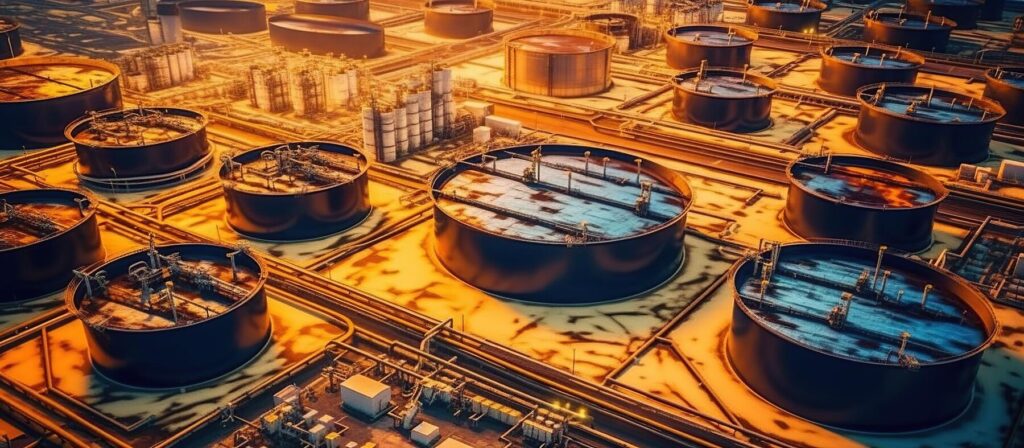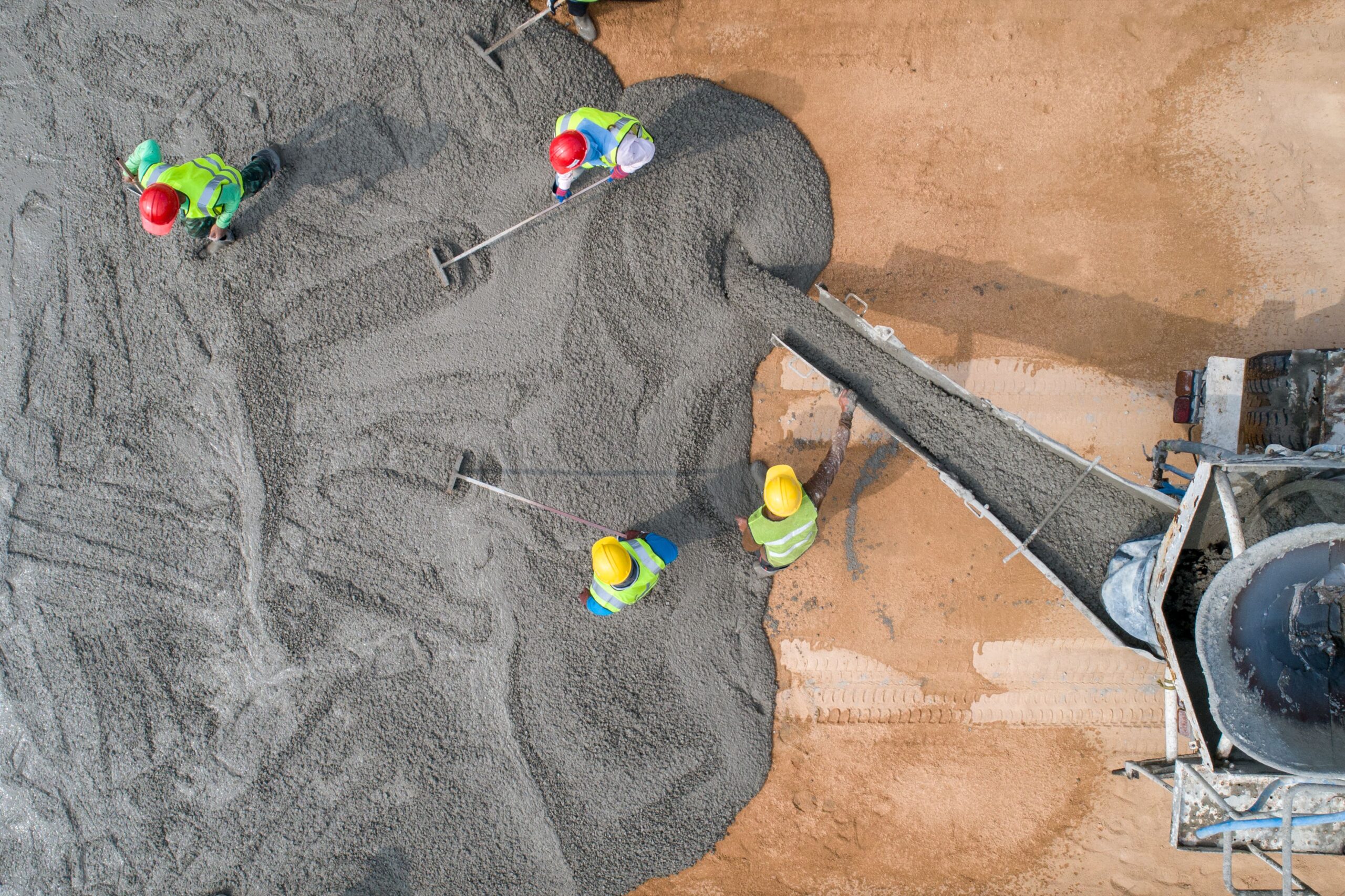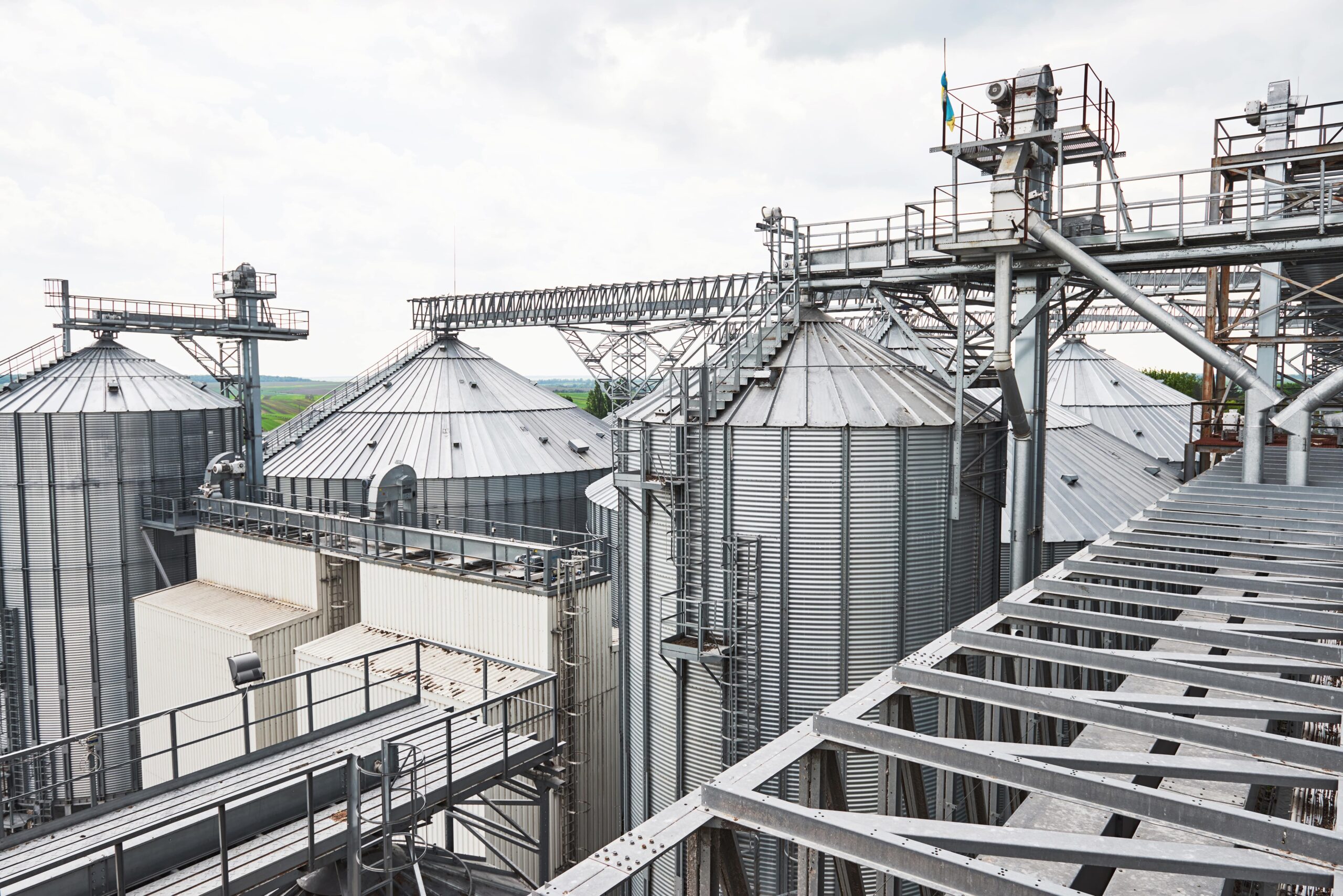Introduction
oil and gas industry, a cornerstone of modern civilization, has always been intertwined with the world of chemicals. This article delves into the significance, history, and innovations of chemicals in the oil and gas sector, covering the entire process from drilling (both onshore and offshore), transportation, and refinery, as well as specialty products related to upstream (exploration & drilling with production), midstream (transporting), and downstream (refinery) in the oil industry.
History of Chemical Usage in Oil and Gas industry
Tracing the Roots: Ancient Practices
The history of chemical usage in the oil and gas industry is as rich and deep as the reservoirs they help to tap. In ancient times, basic chemicals were used to aid in the extraction and processing of oil and gas. Ancient civilizations utilized naturally occurring substances to facilitate the drilling process, showcasing early human ingenuity in harnessing the Earth’s resources.
The Middle Ages to the Industrial Revolution
Fast forward to the Middle Ages and the onset of the Industrial Revolution, the oil and gas industry saw a significant shift. The need for more efficient extraction methods led to the exploration and incorporation of various chemicals to enhance the drilling process. This period marked the beginning of a symbiotic relationship between the industry and chemical innovations, setting the stage for monumental advancements in the years to come.
The 20th Century: A Chemical Revolution
The 20th century marked a period of unprecedented growth and advancement in the oil and gas industry. The discovery and development of a plethora of chemicals revolutionized the industry. From drilling fluids to corrosion inhibitors, chemicals played a crucial role in ensuring the efficiency, safety, and sustainability of oil and gas operations. This era laid the foundation for the modern, technologically advanced oil and gas industry we see today.
The Modern Era: Balancing Efficiency and Sustainability
In today’s modern era, the oil and gas industry faces the dual challenge of enhancing efficiency while ensuring environmental sustainability. The industry is continuously evolving, with cutting-edge research and development driving the creation of innovative chemical solutions. These advancements not only optimize the extraction and production processes but also prioritize environmental stewardship and sustainability. The focus is on developing green chemicals and eco-friendly practices to minimize the environmental footprint of oil and gas operations.
Looking Ahead: The Future of Chemicals in Oil and Gas
As we gaze into the future, the role of chemicals in the oil and gas industry is set to evolve further. The emphasis will continue to shift towards sustainability, with the development of environmentally friendly chemicals and practices at the forefront. The industry is committed to navigating the path of innovation, efficiency, and sustainability, ensuring the responsible and effective utilization of the Earth’s precious resources.
The Science Behind Oil and Gas Extraction
Unveiling the Subterranean World

The science behind oil and gas extraction begins with a profound understanding of the Earth’s subterranean landscape. Geologists play a crucial role, employing various techniques such as seismic surveys to map and analyze the geological formations beneath the Earth’s surface. This intricate mapping reveals potential reservoirs that may hold significant oil and gas deposits.
Understanding Reservoirs
Formation and Composition
Reservoirs are complex structures formed over millions of years. They contain a mix of liquids and gases, trapped in porous rock formations. Understanding the formation, composition, and characteristics of these reservoirs is pivotal for efficient and effective extraction.
Pressure and Temperature
The conditions within these reservoirs are extreme, with high pressures and temperatures. These factors influence the type of drilling techniques and chemicals required to successfully extract oil and gas.
The Chemistry of Oil and Gas industry
Hydrocarbon Composition
Oil and gas are primarily composed of hydrocarbons, organic compounds made of hydrogen and carbon atoms. The specific composition of these hydrocarbons affects their physical and chemical properties, influencing extraction methods and the type of chemicals used in the process.
Interaction with Drilling Chemicals
Understanding the interaction between hydrocarbons and various drilling chemicals is essential. Specific chemicals are used to stabilize the drilling process, prevent corrosion of equipment, and enhance the efficiency of extraction, tailored to the unique chemical composition of the oil and gas being extracted.
Drilling Techniques and Chemical Usage
Drilling Fluids
Drilling fluids, or mud, are crucial in the extraction process. They cool and lubricate the drill bit, stabilize the wellbore, and carry drill cuttings to the surface. The composition of these fluids is scientifically formulated to optimize the drilling process.
Enhanced Oil Recovery (EOR)
In Enhanced Oil Recovery, chemicals play a significant role. Techniques such as chemical flooding use specific chemicals to increase the recovery of oil from reservoirs, ensuring maximum extraction and minimizing waste.
Environmental Considerations in Extraction
Green Chemicals and Sustainable Practices
The science of oil and gas extraction is not just confined to efficiency and optimization. It also encompasses environmental sustainability. The industry is increasingly focusing on the development of green chemicals and sustainable extraction practices to minimize environmental impact and ensure the preservation of ecosystems.
Why Chemicals are Essential in Oil and Gas Operations
Enhancing Efficiency
Facilitating Extraction
Chemicals are indispensable in facilitating the extraction process. They help in breaking down deposits and ensuring the smooth flow of oil and gas through the wellbore and pipelines. Specialized chemicals like demulsifiers separate oil and water emulsions, ensuring the purity and quality of the extracted oil.
Optimizing Drilling Operations
Drilling fluids, composed of various chemicals, are used to cool and lubricate the drill bit, stabilize the wellbore, and carry drill cuttings to the surface. The right chemical composition is crucial for optimizing drilling operations and minimizing downtime.
Ensuring Safety in Oil and Gas industry
Corrosion Inhibition
Corrosion inhibitors are used to protect drilling equipment and pipelines from corrosion caused by water, acids, and other substances. This protection is essential for ensuring the safety and integrity of oil and gas operations, preventing accidents and equipment failures.
Well Control
Chemicals are used for well control to prevent blowouts and ensure the stability of the well. Proper well control is crucial for the safety of the operations and the protection of the environment.
Improving Product Quality
Refinement and Separation
Chemicals play a vital role in the refinement and separation processes. They help in the separation of oil, gas, and water, ensuring the delivery of high-quality oil and gas to consumers. The use of desalting chemicals, for example, helps in removing salt and other impurities from crude oil, enhancing its quality.
Treatment and Processing
During the treatment and processing stages, chemicals are used to eliminate contaminants, improve the quality of oil and gas, and prepare them for transportation and use. Chemical additives improve the stability, efficiency, and performance of the end products.
Extending Equipment Life
Maintenance and Protection
Chemicals are used for the maintenance and protection of drilling equipment and machinery. Biocides, for example, are used to control the growth of bacteria in drilling fluids, preventing contamination and ensuring the longevity of the equipment.
Reducing Wear and Tear
Lubricants and other protective chemicals reduce wear and tear on machinery and equipment, ensuring their optimal performance and extending their lifespan. This reduction in wear and tear leads to significant cost savings and operational efficiency.
Environmental Responsibility in Oil and Gas industry
Minimizing Environmental Impact
The oil and gas industry is increasingly using green chemicals and environmentally friendly practices to minimize the environmental impact of extraction and production. These chemicals are designed to be biodegradable and non-toxic, protecting ecosystems while ensuring efficient operations.
Mud Circulation Chemicals
Introduction to Mud Circulation
The Role of Mud in Drilling
Mud circulation is a critical aspect of the drilling process. The “mud” used in drilling is a specially formulated fluid that facilitates the drilling process, providing lubrication, cooling, and support to the drilling apparatus and ensuring the stability of the wellbore.
Types of Mud Circulation Chemicals
Water-Based Muds
Water-based muds are commonly used due to their cost-effectiveness and lower environmental impact. They contain various chemicals, including viscosifiers and weighting agents, to enhance their performance.
Oil-Based Muds
Oil-based muds, containing oil as the continuous phase, are used for more complex drilling conditions. They provide superior lubrication and are more stable at high temperatures.
Synthetic-Based Muds
Synthetic-based muds offer a balance between performance and environmental impact, utilizing synthetic oils to achieve efficient drilling with reduced environmental footprint.
Functions and Benefits
Cooling and Lubrication
Mud circulation chemicals help in cooling and lubricating the drill bit, preventing overheating and wear and tear, and ensuring smooth and efficient drilling operations.
Wellbore Stability
These chemicals contribute to the stability of the wellbore, preventing its collapse and ensuring the safety and efficiency of the drilling process.
Carrying Drill Cuttings
Mud circulation chemicals assist in carrying drill cuttings to the surface, helping to keep the drilling process clean and efficient.
Case Study: Navigating the North Sea
Overcoming Geological Challenges
In a recent drilling project in the North Sea, mud circulation chemicals played a crucial role in navigating challenging geological formations. The use of specialized drilling muds ensured the stability and efficiency of the drilling process, enabling successful oil extraction despite the complex geological conditions.
Environmental and Safety Considerations
Sustainable Practices
The industry is moving towards the use of environmentally friendly mud circulation chemicals. These green chemicals are designed to minimize environmental impact, ensuring the sustainability of drilling operations.
Safety Compliance
Ensuring the safety of mud circulation chemicals is paramount. Compliance with global safety standards and regulations is rigorously maintained, ensuring the protection of both the environment and the workers involved in the drilling process.




